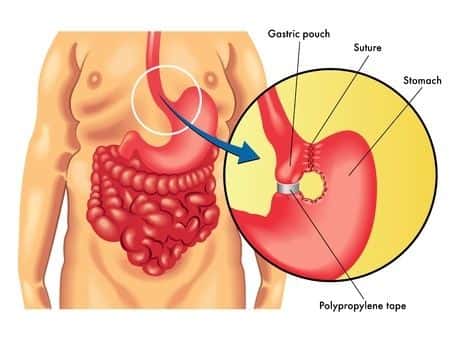This case involves a middle-aged male with a history of morbid obesity who underwent gastric bypass surgery in an attempt to reduce his weight. While undergoing routine testing in preparation for his surgery, doctors noted that the man’s heart displayed signs of a heart rhythm condition that causes rapid, erratic heartbeats that could threaten his life under the wrong circumstances. Nevertheless, the patient’s doctors cleared him for surgery. Just prior to undergoing the procedure, doctors at the operating hospital performed more testing that again revealed signs of this dangerous heart condition. Despite these findings, the patient was again cleared for surgery, and he underwent a gastric bypass procedure the same day. Shortly after the procedure, the patient was released from the hospital with instructions to follow up in a few days. After returning home, the patient complained of chest pain, shortness of breath, and heart palpitations on multiple occasions. Eventually, the patient called the surgeon’s office, where he was told that he would be seen at his scheduled appointment in a few days and had nothing to worry about. That night the patient passed away due to a suspected heart attack.
Question(s) For Expert Witness
1. Should the man have undergone the bypass surgery given his history of this heart disorder?
2. Should the surgeons office have told the man to go to the emergency room due to his palpitations?
3. What is the standard practice for healthcare providers when a patient with this disorder has symptoms of heart palpations following a major surgery?
Expert Witness Response
There are several places where I have concerns about this case because on first evaluation this was a preventable death. With those test findings he should not have had any elective surgery until the disorder was evaluated by a cardiologist. When the patient had a new complaint following surgery he should have been seen and evaluated immediately, or instructed to go to the emergency room. The standard of care for patients with this disorder who have new symptoms is for an evaluation to be performed, because they are at risk for an arrhythmia and sudden death. If the primary care doctor was responsible for an evaluation and/or clearance for surgery and had a history and physical examination, he fell below the standard in care by not getting a cardiology work up. If the PCP had privileges at the hospital that the operation took place, then he is responsible for that content of the medical record. If the PCP does not have privileges, then the surgeon has to validate the PCP's history and physical examination for the medical record and is responsible. Moreover, the anesthesiologist should not have put the patient to sleep with these findings. When a patient calls with a new complaint after a gastric bypass, the patient should have been evaluated or sent to the emergency room. If the patient's symptoms were not discussed with the doctor and it was given by anyone employed by the surgeon, he is still responsible.
About the author
Joseph O'Neill
Joe has extensive experience in online journalism and technical writing across a range of legal topics, including personal injury, meidcal malpractice, mass torts, consumer litigation, commercial litigation, and more. Joe spent close to six years working at Expert Institute, finishing up his role here as Director of Marketing. He has considerable knowledge across an array of legal topics pertaining to expert witnesses. Currently, Joe servces as Owner and Demand Generation Consultant at LightSail Consulting.



